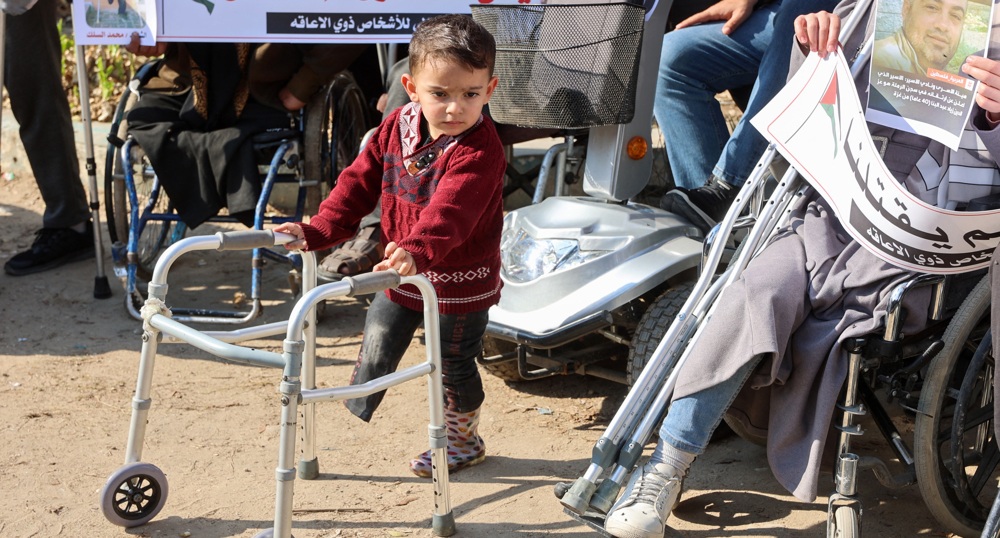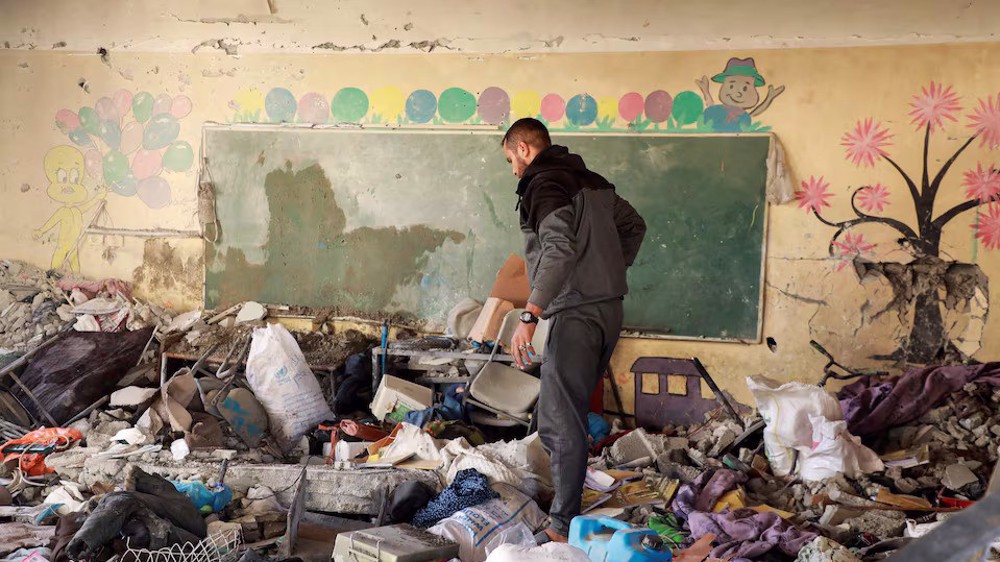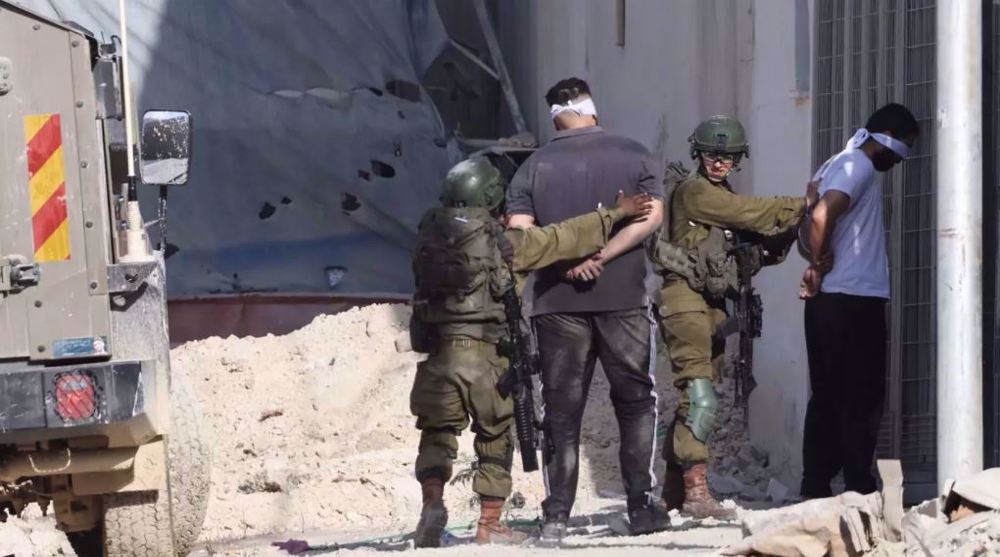Thousands rally in West Bank to back Palestinian hunger strikers
Several thousands of Palestinians have taken to the streets in the West Bank city of Ramallah to express their solidarity with the large number of Palestinian inmates who are on hunger strike in Israeli prisons.
Demonstrators gathered in Nelson Mandela Square on Wednesday, waved Palestinian flags and posters of Marwan Barghouti, the strike leader, bearing his quote “Our chains will be broken before we are.”
Barghouti, 57, is a top leader of the Palestinian Fatah Movement. He began an open-ended hunger strike on April 17, dubbed the Freedom and Dignity Strike, along with some 1,500 other inmates in protest at their conditions in Israeli prisons.
During the past 17 days, more and more Palestinian inmates have joined the strike. Fifty prisoners were reported to have joined the protest action on Thursday.
Read more:
The organizers of the Wednesday rally, including Barghouti’s wife, Fadwa Barghouti, also called for “the largest campaign of civil disobedience” against Israel.
Barghouti, a highly popular figure among Palestinians, has been sentenced by an Israeli court to serve five life terms in jail over his role in a Palestinian Intifada (Uprising). He has been in Israeli prisons since 2002. He has been placed in solitary confinement following the initiation of the hunger strike.

The Palestine Liberation Organization (PLO) on Wednesday released a statement by Barghouti in which he said that he and the other hunger strikers in Israeli jails had launched the strike for “freedom and dignity” and would continue it until their “legitimate demands are met.”
“Israel cannot silence us, nor isolate us, nor break us,” he said, adding that, “This hunger strike aims to confront the ongoing and escalating unjust Israeli occupation policies against prisoners and their loved ones. We stress our determination to undertake this struggle whatever the cost.”
The strikers are calling for immediate improvements in jail conditions, including longer family visits, proper medical attention, phone access, and an end to solitary confinements and administrative detention.

The much-criticized administrative detention is a policy under which Palestinian inmates are kept in Israeli detention facilities without trial or charge. Nearly 700 prisoners are currently held in such detention; some of them have served for up to 11 years.
Fadwa Barghouti also said that the hunger strike, as an act of protest, was part of the Palestinians’ battle against “the occupation and for independence and dignity.”
Meanwhile, Palestinians have been drinking salty water in an act of solidarity with the hunger strikers. On Wednesday, a group of Palestinians in the besieged Gaza Strip offered salty water to passersby and a number of restaurants in the Gaza City put that drink on their menus, too.
According to the prisoners’ rights group Addameer, some 6,500 Palestinians were in Israeli prisons as of January this year, including 53 women and 300 children.
US imposes new sanctions on fleet involved in Iran’s oil exports
Iran ready to consider troop deployment to Syria upon official request
VIDEO | Press TV's news headlines
23 Palestinians killed in Gaza as Israel issues new evacuation threats
Gazans now face epidemic of traumatic injuries: UNRWA
South Korea’s President Yoon declares martial law
Yemen, Iraqi resistance strike Israeli targets in joint operations
France’s Barnier government inches closer to collapse









 This makes it easy to access the Press TV website
This makes it easy to access the Press TV website